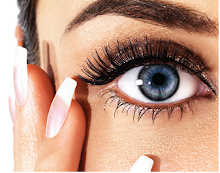Corneal oedema
The water content of normal cornea is 78 percent. It is kept constant by a balance of factors which draw water in the cornea (e.g., intraocular pressure and swelling pressure of the stromal matrix = 60 mm of Hg) and the factors which draw water out of
cornea (viz. the active pumping action of corneal endothelium, and the mechanical barrier action of epithelium and endothelium). Disturbance of any of the above factors leads to corneal oedema, wherein its hydration becomes above 78 percent, central thickness increases and transparency reduces.
cornea (viz. the active pumping action of corneal endothelium, and the mechanical barrier action of epithelium and endothelium). Disturbance of any of the above factors leads to corneal oedema, wherein its hydration becomes above 78 percent, central thickness increases and transparency reduces.
Causes of corneal oedema
1. Raised intraocular pressure
2. Endothelial damage
i. Due to injuries, such as birth trauma (forceps delivery), surgical trauma during intraocular operation, contusion injuries and penetrating injuries.
ii. Endothelial damage associated with corneal dystrophies such as, Fuchs dystrophy, congenital hereditary endothelial dystrophy and posterior polymorphous dystrophy.
iii. Endothelial damage secondary to inflammations such as uveitis, endophthalmitis and corneal graft infection.
3. Epithelial damage due to :
i. mechanical injuries
ii. chemical burns
iii. radiational injuries
Clinical features
Initially there occurs stromal haze with reduced vision. In long-standing cases with chronic endothelial failure (e.g., in Fuch's dystrophy) there occurs permanent oedema with epithelial vesicles and bullae formation (bullous keratopathy). This is associated with marked loss of vision, pain, discomfort and photophobia, due to periodic rupture of bullae.
1. Raised intraocular pressure
2. Endothelial damage
i. Due to injuries, such as birth trauma (forceps delivery), surgical trauma during intraocular operation, contusion injuries and penetrating injuries.
ii. Endothelial damage associated with corneal dystrophies such as, Fuchs dystrophy, congenital hereditary endothelial dystrophy and posterior polymorphous dystrophy.
iii. Endothelial damage secondary to inflammations such as uveitis, endophthalmitis and corneal graft infection.
3. Epithelial damage due to :
i. mechanical injuries
ii. chemical burns
iii. radiational injuries
Clinical features
Initially there occurs stromal haze with reduced vision. In long-standing cases with chronic endothelial failure (e.g., in Fuch's dystrophy) there occurs permanent oedema with epithelial vesicles and bullae formation (bullous keratopathy). This is associated with marked loss of vision, pain, discomfort and photophobia, due to periodic rupture of bullae.
Treatment
1. Treat the cause wherever possible, e.g., raised IOP and ocular inflammations.
2. Dehydration of cornea may be tried by use of:
i. Hypertonic agents e.g., 5 percent sodium chloride drops or ointments or anhydrous glycerine may provide sufficient dehydrating effect.1. Treat the cause wherever possible, e.g., raised IOP and ocular inflammations.
2. Dehydration of cornea may be tried by use of:
ii. Hot forced air from hair dryer may be useful.
3. Therapeutic soft contact lenses may be used to get relief from discomfort of bullous keratopathy.
4. Penetrating keratoplasty is required for longstanding cases of corneal oedema, non-responsive to conservative therapy.
check all information about GLAUCOMA SURGERY AT THIS LINK



No comments :
Post a Comment
Waiting for your comments